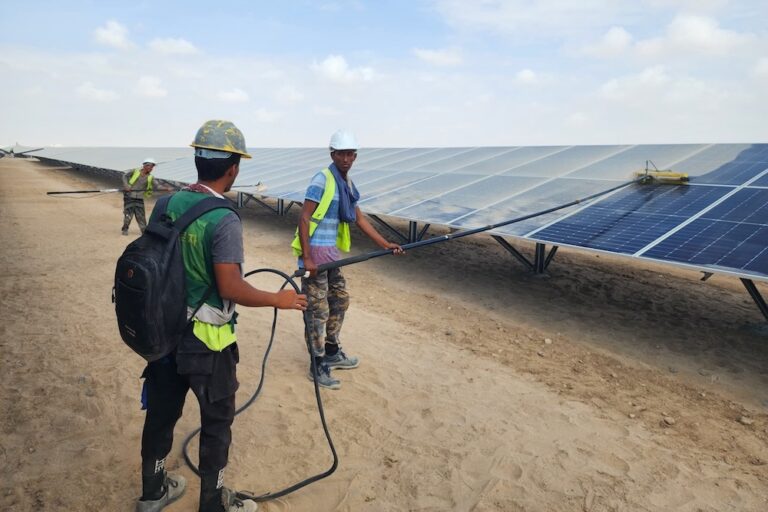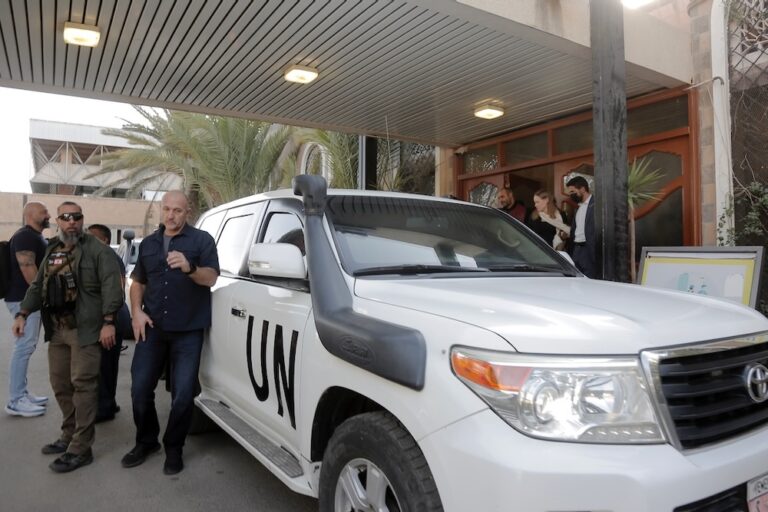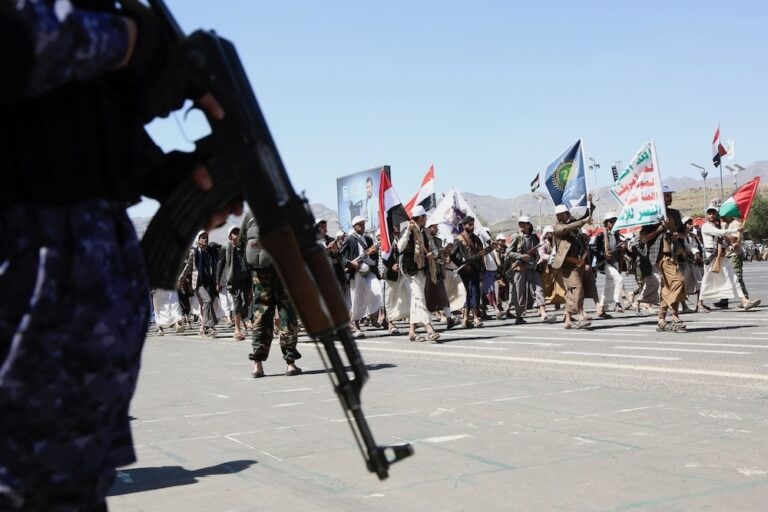Journalist AbdelKhalee Omran remains captive in a “political security” prison in Sana’a controlled by Houthi rebels together with eight other colleagues. He has been heavily tortured in captivity.
This statement was originally published on ifj.org on 29 November 2016.
The International Federation of Journalists (IFJ) today joined its affiliate, the Yemeni Journalists’ Syndicate (YJS), in expressing its concerns over the worsening health of a kidnapped journalist who has been tortured in captivity.
Editor of the online site Alislah AbdelKhalee Omran was kidnapped on 9 June 2015 by the Houthi rebels at the Dream Land Hotel in the capital, Sana’a, together with 8 other colleagues. Reports said they were working from the hotel as they felt safer and could use electricity without interruption.
Omran remains captive in the “political security” prison in Sana’a and, like the others, has been subject to repeated torture, a lawyer’s group which visited them in the prison reported.
The journalist’s family recently told the YJS that Omran suffers from severe pain in the spine, back and that his health keeps deteriorating.
“The YJS condemns this cruel treatment towards Omran and the other kidnapped journalists,” said the union in a statement. “We demand a quick medical intervention for Omran and that he is transferred to the hospital to receive the necessary medical care”.
The IFJ once again backed their affiliate and expressed their solidarity with Omran and all the Yemeni journalists facing inhumane treatment in detention. The Federation sent a Initiates file downloadletter in May this year to the United Nations envoy in Yemen, Mr. Ould Cheikh Ahmed, exposing the inhumane conditions of the jailed journalists and urging him to act to help secure their immediate release.
“The IFJ repeats its demands from the de facto government to free all journalists in its prisons,” said IFJ President, Philippe Leruth. “The maltreatment and inhumane conditions in which it keeps its prisoners have been tolerated for too long by the international community and the United Nations General Secretary and his special envoy should report on the measures to be taken to protect Yemeni journalists in these conflict zones”.
In total, 16 journalists remain captive and 8 have been killed in Yemen in 2016, according to IFJ figures. In addition, the YJS recently recorded over 100 cases of rights violations against journalists and photographers and dozens of newspapers and websites were forcibly closed during the first six months of 2016. The violations includes 11 cases of torture, 10 cases of attempted murder, 24 cases of abduction and detention, 12 cases of assault on journalists, media offices and private property, 13 cases of threats and incitement against journalists, 13 cases of blocking internal and external web sites, 7 cases of stopped salaries and dismissals and confiscation of journalist’s equipment and newspapers, and two trials.


